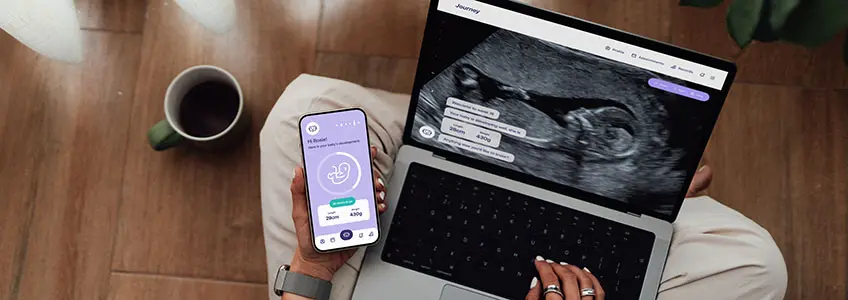The director of the FUNIBER Technology Center and researcher at the Universidad Europea del Atlántico (UNEATLANTICO), Daniel Gavilanes Aray, is participating in a study on how the use of IoT can improve maternal care from pregnancy to neonatal care.
Pregnancy and the perinatal period are vitally important for the health of the mother and newborn. However, access to regular check-ups, continuous monitoring, and specialized care can be limited by geographical, logistical, or socioeconomic barriers, especially in areas with scarce resources.
For years, prenatal and neonatal check-ups have relied on in-person visits, one-off assessments, and medical equipment in specialized centers. These methods are useful but not very scalable for large populations, and they may not provide comprehensive follow-up when complications arise.
Advances in digital technologies and wearable sensors offer an alternative: the possibility of remote, continuous, and accessible monitoring via the internet. In this context, the review stands out for systematically compiling existing evidence on how the IoT has been applied in pregnancy, childbirth, and neonatal care, identifying current trends, the devices used, and the challenges that remain.
The authors conducted a systematic review following international criteria (PRISMA methodology), analyzing 42 relevant scientific studies on IoT systems, architectures, models, and devices aimed at maternal monitoring—from the vital signs of the mother and fetus to prenatal and neonatal care management.
The analysis shows that the IoT is already present in a wide variety of proposals: wearable sensors for monitoring vital signs, early warning systems, care coordination platforms, remote recording devices, and even applications for reminding patients to take their medication or attend regular check-ups. This suggests a paradigm shift: from a reactive model of care (in-person checkups) to a proactive, preventive, and continuous model that is less dependent on geographical proximity.
The following results stand out from the evidence analyzed:
- Numerous studies show that it is feasible to monitor maternal and fetal health from home or non-hospital settings using IoT, with sufficient sensitivity to detect risk factors.
- The use of connected devices facilitates the coordination of prenatal care, postpartum follow-up, and neonatal monitoring, reducing the need for frequent visits and allowing for more continuous management.
- The adoption of IoT in maternal health is growing rapidly, opening the door to new models of care that are more accessible, inclusive, and personalized, which is especially beneficial for remote communities or those with limited access to health services.
These findings imply that health institutions, health authorities, and organizations dedicated to maternal health should seriously consider integrating IoT technologies into their care protocols. The implementation of connected devices and remote monitoring systems could improve prenatal and neonatal coverage, reduce risks, enable early interventions, and expand monitoring capacity in vulnerable populations.
This advance is directly linked to an official academic program promoted by FUNIBER: Master in Management of Primary Healthcare Services focused on innovation, digital health, and community well-being.
If you would like to learn more about this study, click here.
To read more research, consult the UNEATLANTICO repository.
